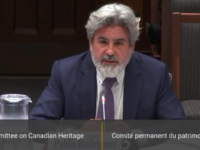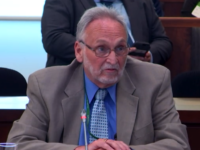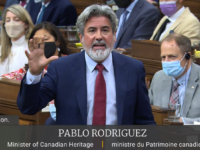Canadian Heritage Minister Pablo Rodriguez appeared before the Standing Committee on Canadian Heritage yesterday, using the opportunity to defend Bill C-11 with assurances that concerns about the inclusion of user content within the bill were “unfounded.” As this post unpacks, the denials of content regulation ring hollow as his defence falls apart on close examination of the bill. Numerous witnesses, including digital creators, Internet platforms, and industry associations, have all expressed concerns about the issue. Rather than respond to them, Rodriguez and the government implausibly deny that the issue exists at all.
Blog
Nettwerk Music Group Sounds Alarm Bells on Bill C-11: “It Will Hurt Canadian Artists and Music Companies”
Nettwerk Music Group has long been recognized as one of Canada’s leading independent music companies. Led by Terry McBride, the company has featured label and management clients that include Coldplay, Sarah McLachlan, Dido, and Barenaked Ladies. The company has a reputation for embracing innovation: it was one of the first to drop digital rights management technologies from MP3 music sales and focused on fan preferences in the marketing and distribution of music. Given its role and reputation, when it engages in public policy, government should pay attention.
Yesterday, Nettwerk released a statement on Bill C-11 that is exceptionally critical of the legislative proposal:
Bell on Bill C-11: Limit Consumer Choice, Weaken Competition, and Legislate Access to Cheap U.S. Content
Just over 11 years ago, I wrote a column for the Toronto Star titled U.S. Web-Streamed TV Could Change Game for Canadian Broadcasters. The piece argued that Internet streaming of television was in its infancy, but could soon become the norm with major implications for Canadian broadcasters:
While the use of the Internet to by-pass Canadian broadcasters is still relatively rare – most U.S. programs bundle the broadcast and Internet rights together – the decision to stream the games directly into the Canadian market could soon become the norm. The key determinant will obviously be money. Once U.S. rights holders conclude that it is more profitable to retain the Internet rights so that they can stream their programs online to a global audience and capture the advertising or subscription revenues that come with it, Canadian broadcasters may find that they can only license broadcast rights with the U.S. rights holders competing directly with them via the Internet.
I continued by noting that the Internet was on the verge of disrupting the longstanding Canadian broadcast model and its reliance on cheap U.S. programming. I speculated that the result would be that Canadian broadcasters would recognize the need to create their own content that they could licence online around the world.
That column came to mind during Bell’s appearance before the Heritage committee on Bill C-11 yesterday.
CRTC Chair Ian Scott Confirms It Yet Again: Bill C-11 Includes Regulatory Power On User Content
The Online Streaming Act hearings at the Canadian Heritage committee continued yesterday with testimony from several notable witnesses, including CRTC Chair Ian Scott. Scott had appeared before the committee several weeks earlier, confirming that Bill C-11 contains a provision that captures user content regulation, acknowledging that “as constructed, there is a provision that would allow us to do it as required.” That statement would not ordinarily be controversial since the inclusion of user content has been readily apparent since the bill was introduced. I’ve argued that Heritage Minister Pablo Rodriguez has engaged in systematic gaslighting with his insistence that user content is not in the bill. My post on the issue walks through the proposed legislation, noting the “CRTC is empowered to create regulations applicable to user content uploaded to social media services as programs” and focusing specifically on the discoverability rules and their implications.
Scott’s appearance was presumably designed to walk back or soften his earlier statement on user content regulation in the bill. And while he was at pains to suggest that the CRTC faced strict limits in its regulatory power, he once again acknowledged the reality:
Bill C-11 and User Content at the Heritage Committee: The Gaslighting Continues
The Standing Committee on Canadian Heritage continues its hearing into Bill C-11 today with hours of scheduled testimony and witnesses that include Netflix, Youtube, and CRTC Chair Ian Scott. The witness list is becoming notable both for who is not included (a bill called the Internet Streaming Act without TikTok or Amazon or Apple or Roku?!) and who is back for another appearance (Scott will surely face pressure to soften his earlier comment that the user content is included in the bill). For those Canadians that haven’t been paying close attention, I’ve compiled a short video on the hearing thus far, which has featured multiple witnesses confirm their concerns that the bill includes the regulation of user content and Canadian Heritage Minister Pablo Rodriguez pretending that he isn’t paying attention.











